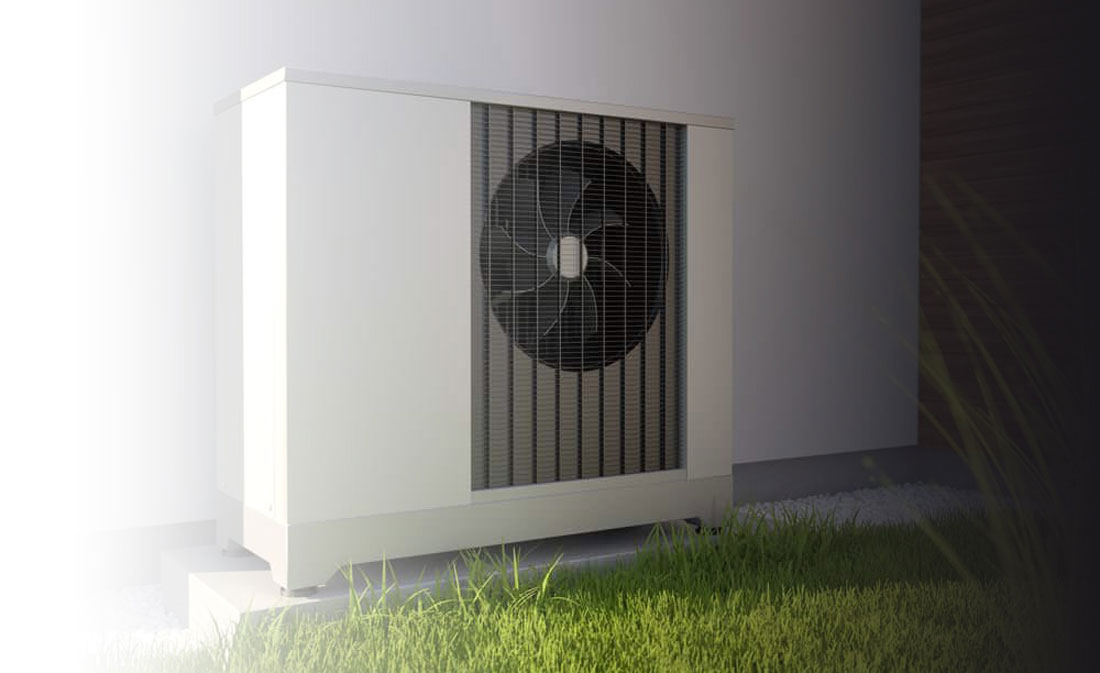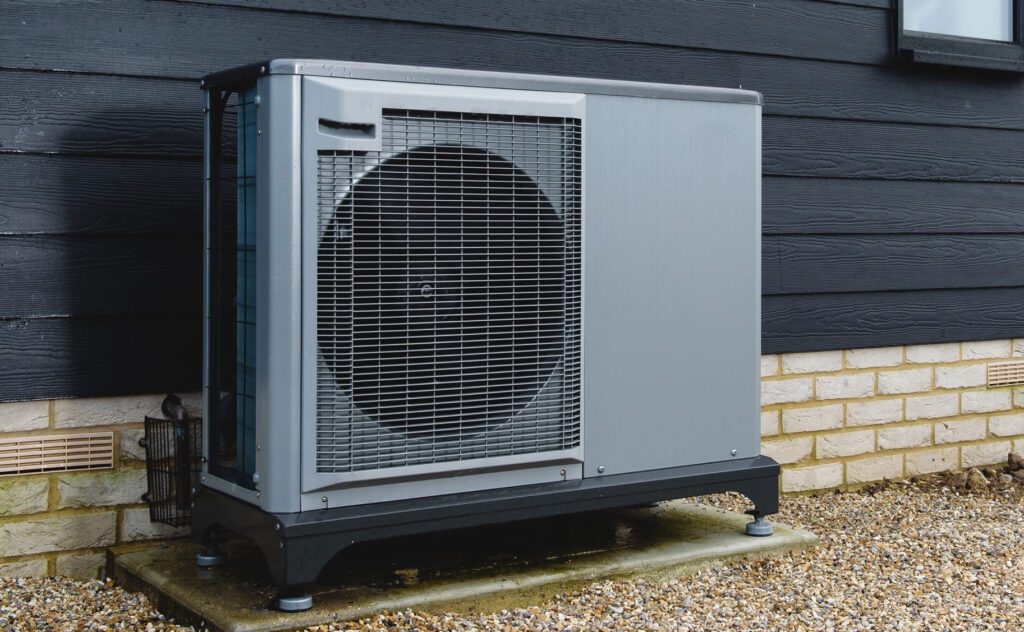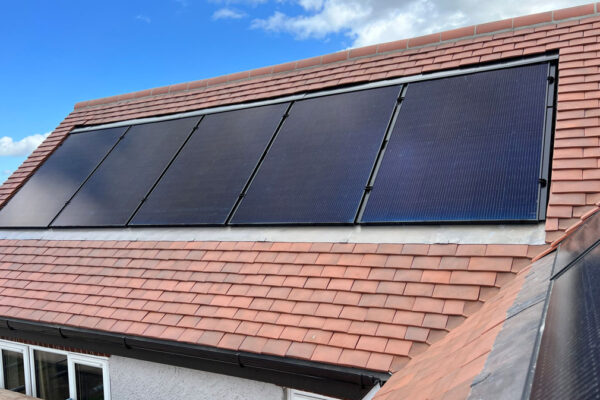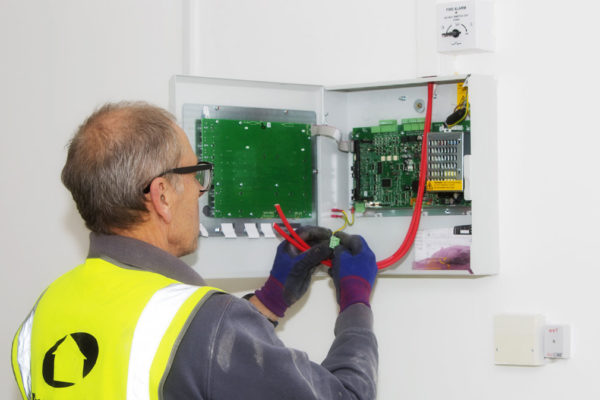
Heat pumps: How they work
Heat pumps are more efficient than other heating systems because the amount of heat they produce is more than the amount of electricity they use. The amount of heat produced for every unit of electricity used is known as the Coefficient of Performance (CoP). So, if a heat pump has a CoP of 3.0, then it will give out three units of heat for every unit of electricity consumed.
In essence heat pumps are a very simple technology, extracting latent heat from the surrounding air, ground or solar panels and concentrating it to higher temperatures to contribute to overall space heating in a house, apartment or office. Heat pumps can offer an energy efficient and low carbon method of contributing to the heating of any building, but are often best suited to residential homes as they work well with solar panel and battery storage, enabling greater energy independence and helping future-proof homes. As well as reducing carbon emissions, heat pumps can also potentially offer a cheaper form of energy for homes in rural areas that are outside the gas network and rely on stored oil or LPG for heating.
How do heat pumps work?
Air source and ground source heat pumps absorb heat from the outside ground or air and convert it into heat and hot water for your home. They use reverse refrigeration technology to produce an energy ‘multiplier effect’.
The efficiency of the conversion process is called the Coefficient of Performance (CoP). If a heat pump system has a CoP of 3, then for every 1kWh of electricity used to run the system you will potentially get 3kWh of energy for heating. Typical CoPs for air source heat pumps (ASHPs) are around 3.5 and for ground source heat pump (GSHPs) CoPs are around 4.5.

Air source heat pumps are becoming increasingly common and can be very efficient
Ground or air source
Ground source heat pumps (GSHP) rely on absorbing the heat from under the ground using cables buried 1 metre underground in 50 – 100 metre lengths. GHSPs are more efficient and have a greater CoP than ASHP systems as the temperature of the ground is fairly constant. However, GSHPs do require a large outside space for all the pipework, the equivalent of half a football pitch.
Air source heat pumps (ASHP) involve a small-sized ASHP unit being located outside close to the building. ASHPs are not as efficient as GSHPs in terms of converting electricity to heat but are about half the price and do not require a huge amount of outdoor space.
Pros
• If you are outside the gas network and replacing LPG or oil-fired heating, heat pumps are considerably cheaper to run.
• At present, the running costs of a heat pump are roughly on a par with heating your home with mains gas, but the cost of gas is rising and will eventually be phased out.
Cons
• Heat pumps aren’t always suitable for every property. For a larger uninsulated property, the lower temperatures generated by a heat pump system would probably be insufficient in winter
• Additional insulation and airtightness measures will probably be required before installing a heat pump as the system is unlikely to be as efficient as conventional heating.
For a successful heat pump system:
• Get advice as to whether a heat pump is suitable and whether it would deliver enough heat for your home.
• Ensure that room-by-room heat loss calculations are offered as standard to ensure that you are offered a correctly-sized heat pump for your home.
• Take advantage of any financial support available
• Look out for companies registered with the MCS quality assurance certification scheme
Will installing a heat pump help save money on my heating bills?
The compressor and pumps need electricity to work, but they use less than the quantity of heat they move from outside to inside. The amount of heat energy moved versus the amount of electrical energy used depends on the source temperature and the output temperature, so it varies constantly throughout the year as outside temperatures change.
How this will affect your energy bill will depend on several factors, including:
• What fuel you are replacing and how much it costs.
• Your electricity tariff.
• Which type of heat pump you install and how efficient it is.
• The design of your central heating system.
• Your location and its average air or ground temperatures throughout the year.
For people using gas boilers (not LPG or oil boilers), heat pumps are likely to be slightly more expensive to run unless steps are taken to ensure maximum efficiency of the heat pump in the heating system by using good radiator / underfloor heating design. As utility prices increase over time, heat pumps will probably become the cheapest, as well as the lowest carbon, form of heating available.
With LPG or oil, annual variations in prices mean that it’s difficult to provide an exact estimate of annual heating costs. Heating oil has typically fluctuated between 40-65 pence per litre over the last five-year period, with a general upward trend in price. Unless you can buy oil or LPG at the very cheapest time of the year to cover your entire annual use, heat pumps should save you money on running costs assuming a well-designed system is installed.



